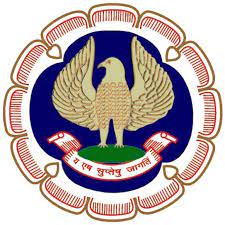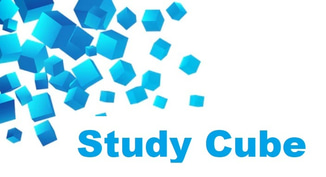CA EXAM INFORMATION AND ABOUT


CA EXAM INFORMATION AND ABOUT
ABOUT CA
Chartered Accountancy (CA) is a prestigious and rigorous professional qualification that enables individuals to become Chartered Accountants. Chartered Accountants are experts in areas such as accounting, auditing, taxation, financial management, corporate finance, and law. In India, the Institute of Chartered Accountants of India (ICAI) is the governing body that regulates and conducts the CA course. ICAI is one of the largest accounting bodies globally, established in 1949 under an Act of Parliament.
The CA qualification is highly regarded for the comprehensive financial, legal, and analytical expertise it provides, and it enables professionals to pursue careers in diverse fields, including auditing, consulting, taxation, and financial advisory.
Pathway to Become a Chartered Accountant
The CA course consists of three main levels, along with practical training components, each of which must be completed to achieve the CA qualification:
CA Foundation (Entry Level)
The Foundation level is the entry point for students who have completed their 12th grade in any stream.
The syllabus covers basic accounting, business laws, mathematics, and economics.
The Foundation exam is conducted twice a year (May and November) and serves as a stepping stone to the Intermediate level.
CA Intermediate (Second Level)
The Intermediate level provides in-depth knowledge of accounting, corporate law, taxation, and financial management.
It consists of 8 papers divided into two groups (Group I and Group II). Candidates may choose to clear one group at a time or both simultaneously.
Students who have completed their graduation (Commerce with at least 55% marks or Non-Commerce with 60%) can directly enter the Intermediate level via the Direct Entry Route, bypassing the Foundation level.
CA Final (Advanced Level)
The CA Final level is the last and most advanced stage of the CA course.
It includes 8 papers with in-depth studies in strategic financial management, advanced auditing, corporate and economic laws, and elective specializations.
Candidates must complete both groups and meet the practical training requirements to qualify as Chartered Accountants.
Practical Training (Articleship)
One unique feature of the CA course is the Articleship or practical training. This is a three-year mandatory internship program that provides CA students with hands-on experience under the guidance of a practicing CA or a CA firm. It is typically undertaken after passing one or both groups of the CA Intermediate level. Key aspects of articleship include:
Exposure to real-world accounting, taxation, and auditing practices.
Development of soft skills, such as communication, teamwork, and client management.
Opportunities to work in diverse sectors, including manufacturing, finance, and consulting, depending on the firm’s client base.
Articleship is crucial for CA students as it gives practical insights into the industry and prepares them for professional challenges.
Self-Paced Online Modules
The ICAI recently introduced Self-Paced Online Modules to allow CA students to specialize in emerging and high-demand areas. These modules are mandatory for students appearing for the CA Final exams and include topics like Information System Controls and Audit (ISCA), Data Analytics, International Taxation, and Financial and Capital Markets. Students must complete the mandatory modules and select elective modules of their choice to enhance their expertise in specific areas of finance.
Information Technology and Soft Skills Training
In addition to theoretical knowledge, the ICAI emphasizes Information Technology Training (ITT) and Soft Skills Training. These courses are mandatory at both the Intermediate and Final levels:
Information Technology Training (ITT):
ITT focuses on essential IT skills, including accounting software, data analytics, ERP systems, and cybersecurity.
The Basic ITT is required after CA Foundation, and Advanced ITT is needed before the CA Final level.
Soft Skills (Orientation and MCS):
The Orientation Course at the Intermediate level and the Management and Communication Skills (MCS) Course at the Final level enhance communication, leadership, and management skills.
These courses equip CA students with the necessary interpersonal and professional skills for dealing with clients, handling presentations, and leading teams.
Eligibility Criteria for CA Course
CA Foundation: Students must have completed 12th grade (any stream) from a recognized board.
Direct Entry Route (CA Intermediate): Commerce graduates with at least 55% marks or other graduates with 60% marks can directly enroll in CA Intermediate without appearing for CA Foundation.
CA Final: Candidates must pass both groups of CA Intermediate, complete their articleship, and complete the self-paced modules to be eligible.
Exam Structure
Objective and Subjective Format: The CA Foundation exam includes objective and subjective papers, while the Intermediate and Final exams consist primarily of subjective papers.
Passing Criteria: Candidates must score a minimum of 40% in each paper and 50% in aggregate per group to clear each level.
Career Opportunities for Chartered Accountants
Chartered Accountants have diverse career options across industries, owing to their versatile skills and in-depth financial knowledge. Some common roles and sectors include:
Audit and Assurance: Internal and external auditing, forensic auditing, compliance audits, and risk management.
Taxation: Direct and indirect tax advisory, tax compliance, and planning.
Financial Advisory: Wealth management, investment advisory, and corporate finance consulting.
Corporate Finance: Financial reporting, budgeting, cost management, and financial analysis.
Consulting: Mergers and acquisitions, restructuring, and strategic business advisory.
Independent Practice: Many CAs choose to establish their firms, offering services in audit, tax, and consulting.
Key Skills Developed in the CA Course
Analytical Thinking: Ability to assess complex financial data and draw logical conclusions.
Financial Acumen: Proficiency in financial reporting, budgeting, and investment analysis.
Problem-Solving Skills: Competency in solving taxation issues, compliance requirements, and strategic planning.
Ethics and Professional Integrity: Adherence to ICAI’s ethical guidelines, ensuring transparency and fairness in financial reporting.
Technological Proficiency: Skilled in IT tools, data analytics, and auditing in computerized environments.
About ICAI (Institute of Chartered Accountants of India)
Established: 1949 under the Chartered Accountants Act, 1949.
Role: ICAI is the regulatory body overseeing the CA profession in India. It sets standards, conducts examinations, and provides continuous professional development for members.
Global Recognition: ICAI has mutual recognition agreements with international accounting bodies, allowing Indian CAs to work abroad with recognized qualifications.
Becoming a Chartered Accountant is challenging, requiring dedication, discipline, and a strong commitment to learning. However, it is a rewarding and respected profession, offering CAs a wide range of career opportunities and the potential for high earning and career growth.
